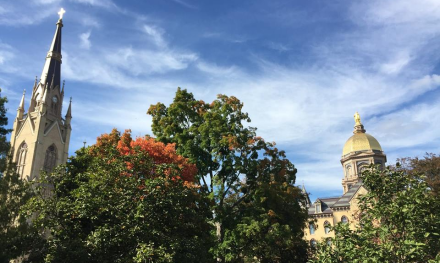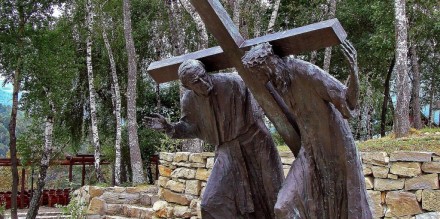Simon Peter answered him, “Lord, to whom shall we go? You have the words of eternal life, and we have believed, and have come to know, that you are the Holy One of God.” – John 6:68

As other reflections start to trickle in and I’ve had the chance to consider what the past few days of the Revoice conference have meant to me, I keep coming back to the words of Simon Peter in the Gospel of John, words that were echoed multiple times in different seminars, testimonies, and conversations over the weekend. They come after one of Jesus’ hardest teachings—one so difficult that many of his followers turn away: “Whoever feeds on my flesh and drinks my blood has eternal life,” Jesus says, using such seemingly uncareful language that later on the Romans would accuse the early church of practicing cannibalism.
In one sense Peter’s confession is not particularly encouraging—in fact it feels like a sort of backhanded compliment. “Yes Jesus we’ll keep following you, because there isn’t any other better option”—the apparent implication that if there was, the disciples would be right there with the rest of Jesus’ followers whose retreating backs were all that remained of their loyalty. And yet Peter’s declaration of allegiance to Christ contains the very thing that holds any of us near to Christ despite sin, suffering, and opposition: “You have the words of eternal life.”





 This focus on the positive vocation to love is not an original formula we came up with. It is a basic element of Christian and Catholic teaching, applied to the particularities of ministry to lesbian, gay, and bisexual persons.
This focus on the positive vocation to love is not an original formula we came up with. It is a basic element of Christian and Catholic teaching, applied to the particularities of ministry to lesbian, gay, and bisexual persons.
You must be logged in to post a comment.